When operating a dump trailer, it’s crucial to understand the mechanisms involved for both safety and functionality. A malfunctioning dump trailer that won’t lower can hinder operations, pose safety risks, and cause frustration for users. In this comprehensive guide, we will dissect the potential reasons why your dump trailer refuses to descend, offering solutions to ensure you’re back on the road efficiently.
Understanding Dump Trailer Mechanics
The Hydraulic System
At the heart of a dump trailer’s functionality is its hydraulic system. This complex interplay of components directs the flow of hydraulic fluid necessary for the lifting and lowering of the trailer. If your dump trailer is not going down, the hydraulic system is often the first place to inspect.
Key Components:
| Component | Function |
|---|---|
| Hydraulic Pump | Compresses hydraulic fluid for operation |
| Hydraulic Cylinder | Mechanism that lifts and lowers the trailer |
| Hoses | Transport hydraulic fluid between components |
| Control Valve | Directs fluid flow to raise or lower the trailer |
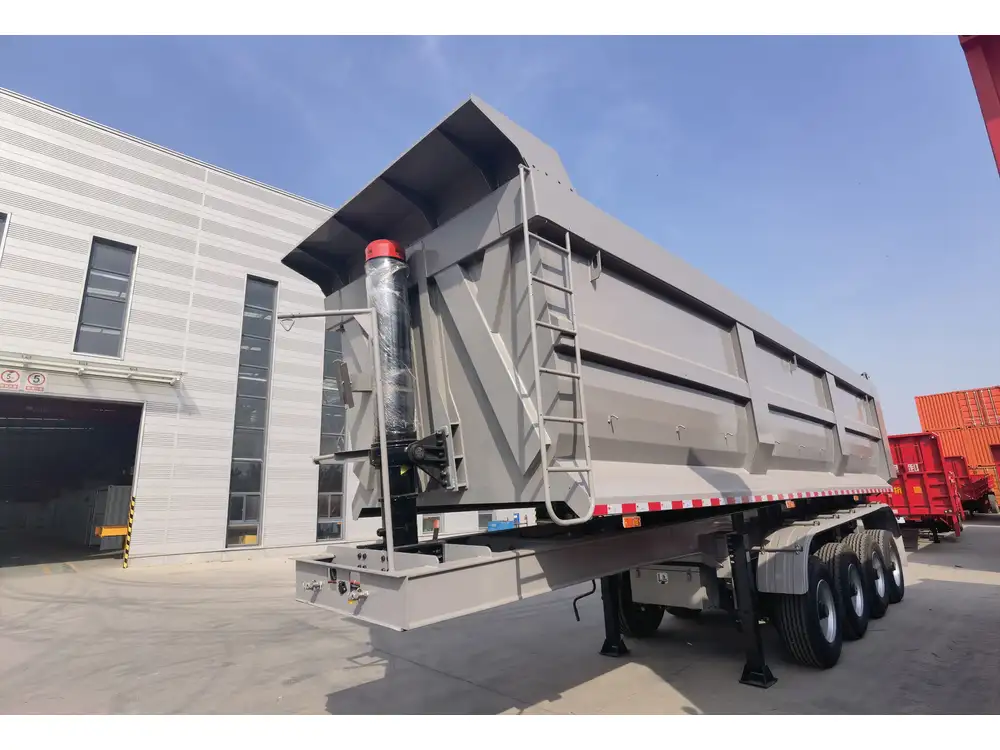
Mechanical Components
Beyond hydro-mechanics, other parts play significant roles in the operation of dump trailers. These can include the release mechanisms linked with the dump box and the frame.
Common Reasons Your Dump Trailer Won’t Go Down
1. Hydraulic Fluid Issues
Hydraulic fluid is the lifeblood of your dump trailer. Insufficient levels, contamination, or air in the system can severely impact performance.
Low Hydraulic Fluid Level:
- Symptoms: Engine noise, sluggish lifting.
- Solution: Check the fluid reservoir. If low, refill with recommended hydraulic fluid.
Fluid Contamination:
- Symptoms: Cloudy or discolored fluid.
- Solution: Drain and replace contaminated fluid, then check filters.
Air in the System:
- Symptoms: Erratic behavior, lack of response.
- Solution: Bleed the hydraulic system according to manufacturer instructions to remove air bubbles.

2. Control Valve Malfunction
The control valve is a crucial element in regulating hydraulic flow. If this part fails, it can prevent the trailer from lowering.
- Symptoms: The lever moves without effect, or there are unusual noises.
- Solution: Inspect the valve for leaks or blockages. If defective, consider replacement or professional repair.
3. Electrical Issues
Many dump trailers come equipped with electric over hydraulic systems. If the system is not activating properly, the cause could be electrical.
Fuses and Wiring:
- Symptoms: Inoperative controls or intermittent performance.
- Solution: Inspect fuses and wiring for signs of damage. Repair or replace as needed.
Battery Issues:
- Symptoms: Weak response or no movement.
- Solution: Test the battery voltage and replace if underperforming.
4. Mechanical Blockages
Sometimes, the issue might not lie within the hydraulic components but instead with physical obstructions or mechanical failures.
Stuck or Damaged Pins:
- Symptoms: Trailer shows no sign of lowering despite hydraulic functioning.
- Solution: Examine pins and linkage for damage. Lubricate or replace parts as necessary to eliminate binding.
Faulty Cylinder:
- Symptoms: Lack of movement or odd noises during operation.
- Solution: Inspect for leaks or physical damage. A professional repair or replacement may be required.
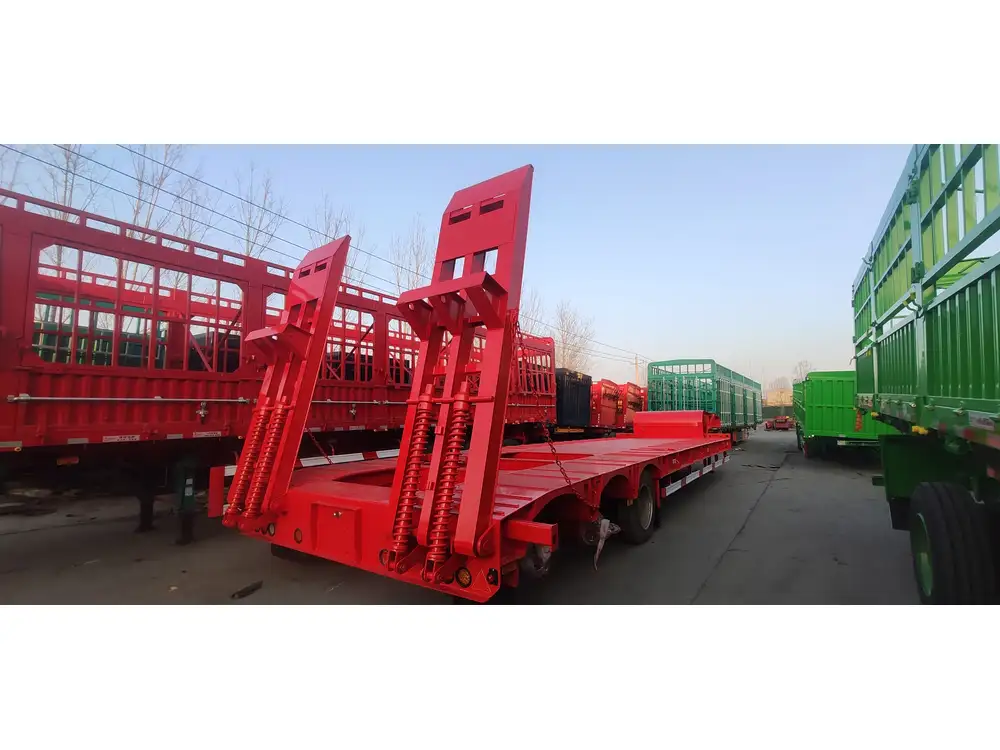
5. Environmental Factors
External factors can impede the functionality of dump trailers, creating operational challenges.
Temperature Extremes:
- Symptoms: Thickened fluids and sluggish movement.
- Solution: Ensure you’re using appropriate hydraulic fluids for the weather conditions.
Corrosion and Rust:
- Symptoms: Reduced mobility of moving parts.
- Solution: Regularly inspect and maintain elements with anti-corrosive measures to mitigate this issue.
Diagnostic Checklist
When confronted with the dilemma of a non-descending dump trailer, refer to this diagnostic checklist to streamline your troubleshooting process:
- [ ] Check hydraulic fluid levels and quality.
- [ ] Inspect control valve for functionality.
- [ ] Assess electrical systems for faults and test battery voltage.
- [ ] Look over all mechanical components for obstructions or damages.
- [ ] Consider environmental factors affecting performance.
Preventative Maintenance Tips
To ward off future issues with your dump trailer’s operation, regularly scheduled preventative maintenance is essential.
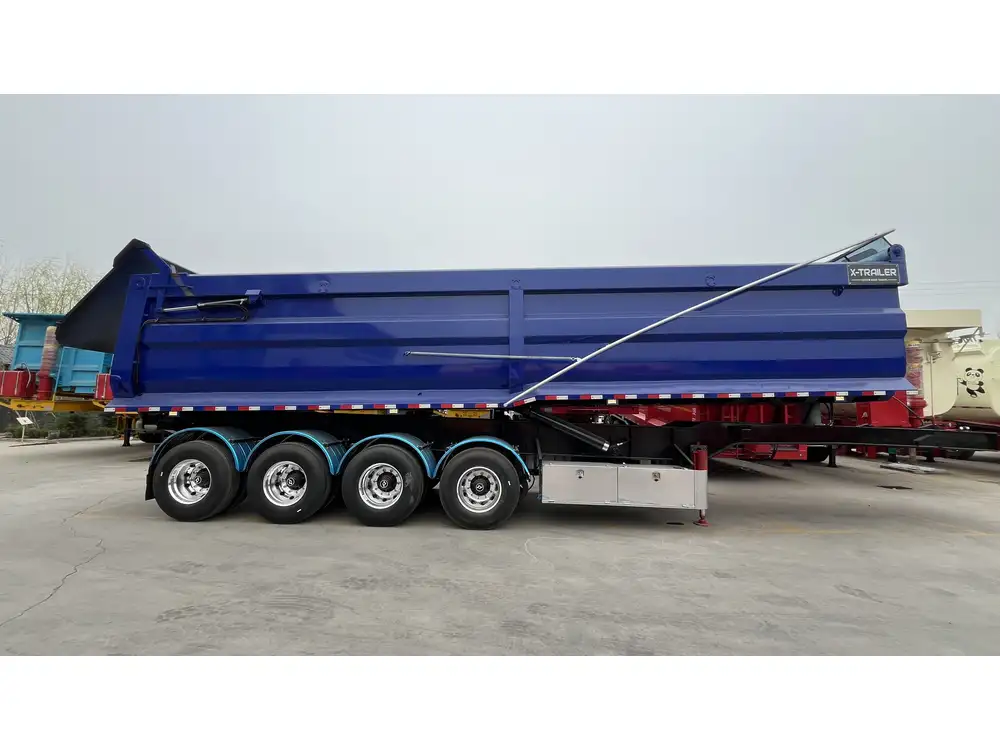
Routine Inspections
Conduct frequent checks of all hydraulic components, wiring, and mechanical linkages. Look for leaks, wear, and tear.
Fluid Maintenance
Regularly change hydraulic fluid based on the manufacturer’s recommendations, ensuring to flush the system to remove contaminants.
Corrosion Protection
Implement anti-corrosion methods such as applying protective coatings to susceptible areas and ensuring storage conditions minimize exposure to moisture.
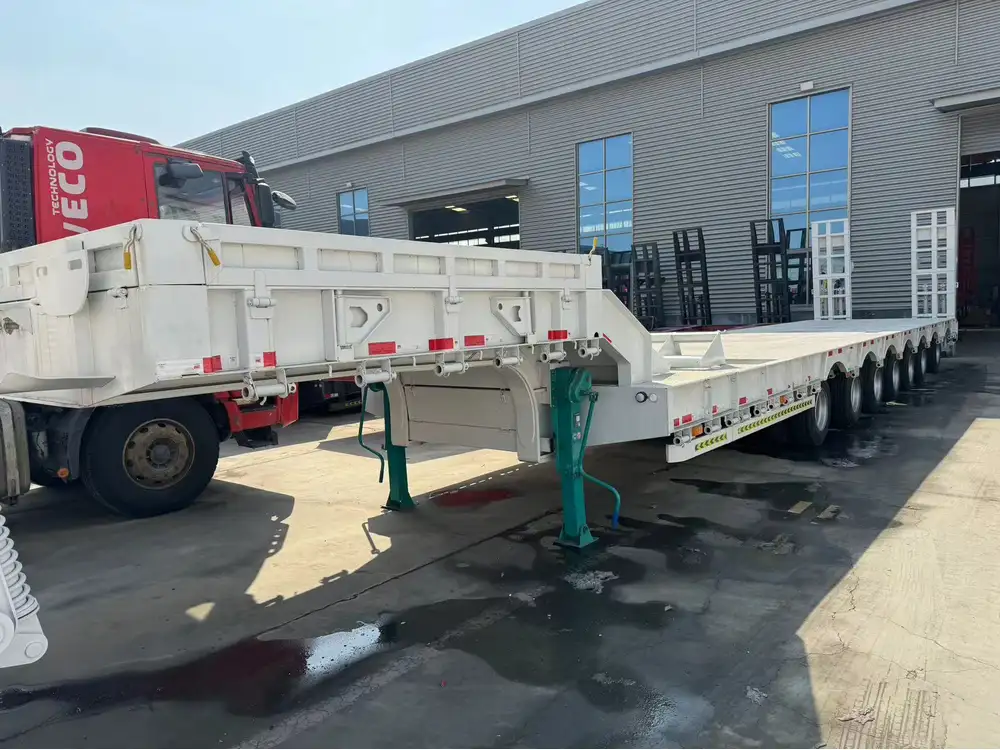
Operator Training
Ensure that all operators are knowledgeable about the dump trailer’s features and common troubleshooting techniques. This can significantly reduce the likelihood of mishandling.
FAQs
How can I tell if my hydraulic fluid is contaminated?
Look for visible discoloration or particulates in the fluid. You can perform a fluid sample analysis for detailed examination.

Is it safe to operate a dump trailer with hydraulic issues?
No, operating a malfunctioning dump trailer poses serious risks to both operator safety and equipment integrity. Immediate inspection and repair are advised.
Can I perform hydraulic repairs myself?
While minor issues can often be addressed, complex repairs should be entrusted to certified professionals to ensure safety and functionality.
What type of hydraulic fluid should I use?
Always refer to your trailer’s owner’s manual for specific hydraulic fluid recommendations. Using the incorrect type can lead to operational issues.
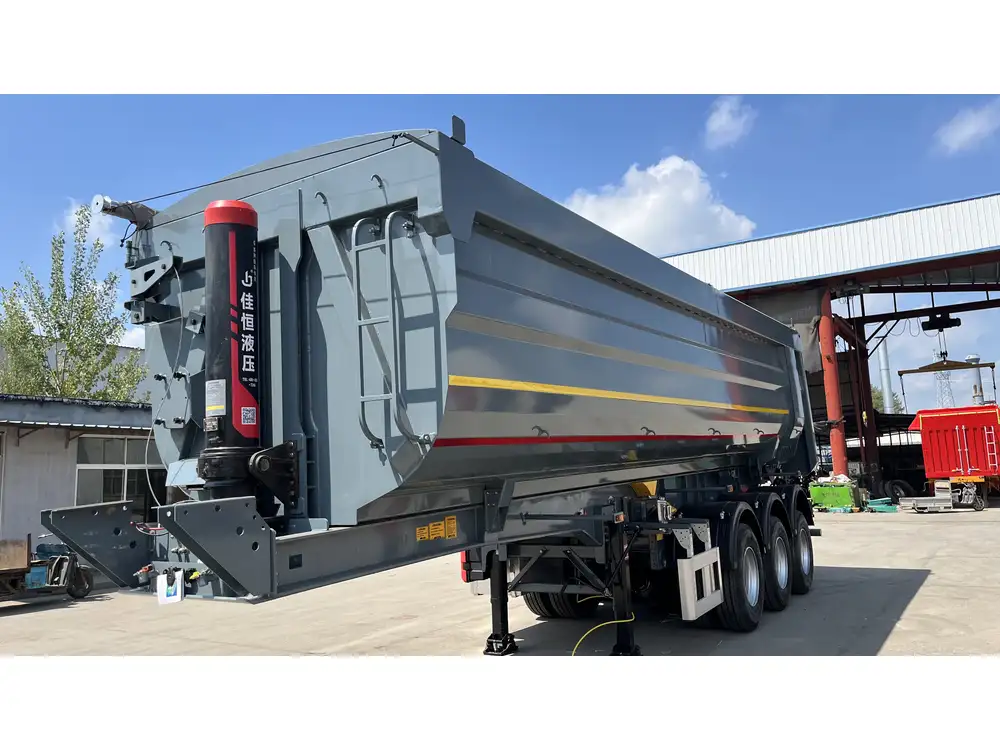
Conclusion
Understanding the nuances of why your dump trailer won’t go down can save you time, money, and minimize safety risks. By systematically diagnosing potential issues—ranging from hydraulic fluid problems to electrical faults—operators can swiftly address and rectify these challenges. Employing preventative maintenance measures will further enhance your trailer’s performance and longevity. Always prioritize safety and quality, ensuring that both your equipment and work environment remain optimal for operation.



